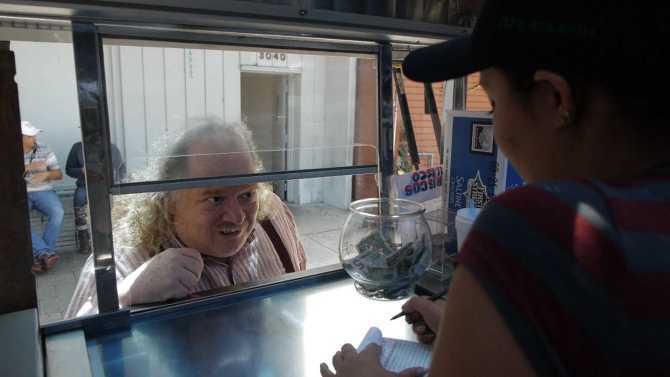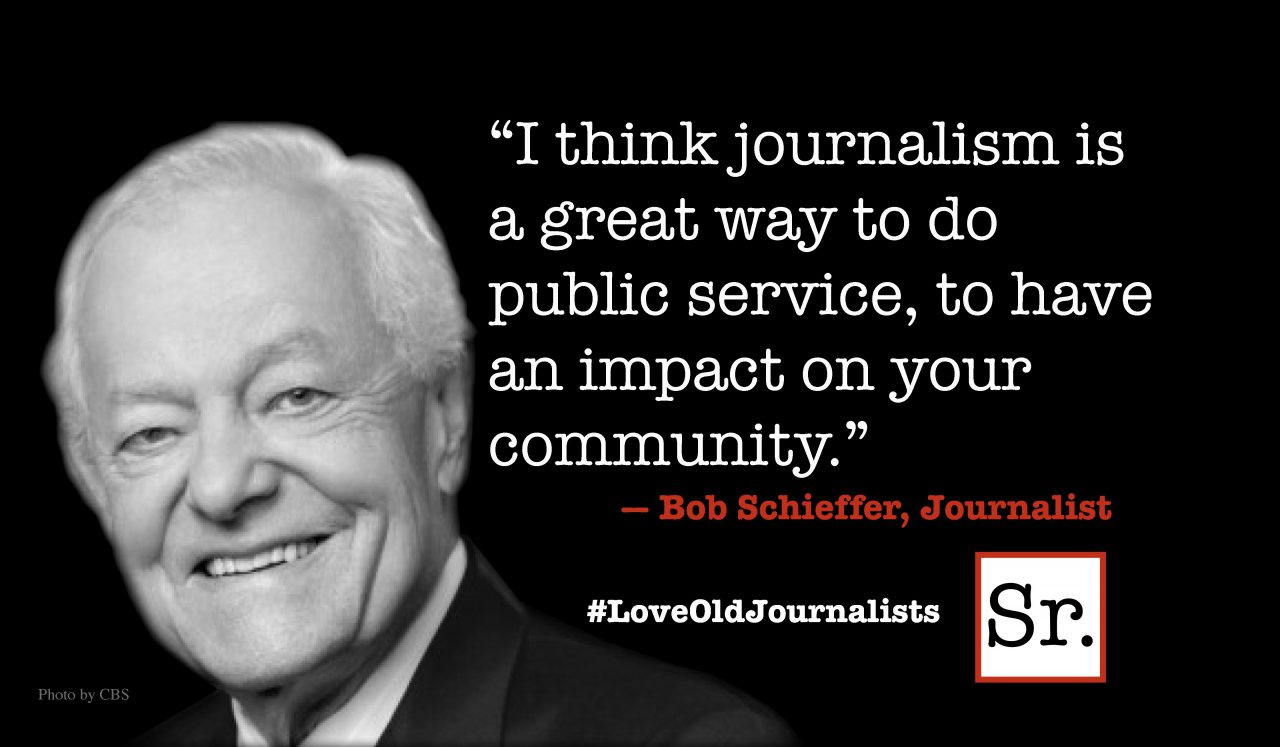Every big city needs a Jonathan Gold.
Gold — who looks like a hippie Wilford Brimley (big gut, rusty ‘stache, bald on top with long scraggly hair hanging down) — is the only food/restaurant writer to have won the Pulitzer Prize for criticism. As Laura Gabbert’s insightful documentary makes clear, he received that honor not just for what he says about eating in Los Angeles, but for his depiction of the city as a living, breathing, vibrant entity.
The son of a probation officer who raised his children in a high-art environment (“The culture of the nation was flowing through our living room,” Gold recalls), he grew up playing cello, both in a youth orchestra and in a punk rock band.
Gold’s fascination with both the high and low end of the musical spectrum is reflected in his approach to restaurant writing. While he’s done haute cuisine, Gold’s real joy is the hole-in-the-wall, mom-and-pop restaurant (or food truck) that specializes in ethnic dining, sometimes in just one particular dish.
He has an astoundingly discerning palate. Chefs note Gold’s ability to pick out the various flavor elements and ingredients of even the most complex dishes.
As the doc shows again and again, an endorsement by Gold on the pages of the Los Angeles Times or the L.A. Weekly has the power to change the lives and fortunes of restaurateurs. The chefs he writes about and his fellow journalists all describe him as a hugely empathetic writer. (One of the film’s main flaws is that it never examines the impact of bad reviews … in fact after watching “City of Gold” one might assume that all of Gold’s reviews are raves.)
Gold’s prose is wonderfully literary without ever dipping into pretentiousness. He writes about food with the same marvelous readability that A.J. Libeling brought to the “sweet science” of boxing or Pauline Kael to movies. The film’s soundtrack often features Gold reading from his critiques. You’ve got to love a guy who rhapsodizes about a meal “whose aftertaste can go on for hours” and argues that “taco should be a verb.”
“City of Gold” follows Gold as he wanders the city, discovering new culinary wonders and revisiting old favorites.
Gabbert’s camera captures the panic in a kitchen when the restaurant manager realizes that Gold is among a party of six that has shown up for lunch. Unlike some restaurant reviewers, Gold doesn’t don disguises to sneak into eateries, although he does have a small arsenal of burner cell phones with which he makes reservations under assumed names.
He never takes notes during a meal. (“Well, you could. You could take notes during sex, but…”)
We see him in meetings with his editors, and learn that Gold is a world-class procrastinator who never writes until a deadline is looming.
It delves into his family life (he’s married to The Times’ arts and entertainment editor, with whom he has a teenage son and daughter).
We meet Gold’s brother, a save-the-ocean activist who disapproves of his brother’s gas-guzzling pickup truck and observes that “I have to be an environmentalist because Jonathan is eating everything I’m trying to save.” (The film does note that Gold finally swore off the Asian delicacy shark fin soup, writing that “It’s hard to work up an appetite for the bitter taste of extinction.”)
There’s even a brief meeting between Gold and Kansas City native Calvin Trillin, the father of post-modern food criticism whose books “American Fried: Adventures of a Happy Eater” and “Alice, Let’s Eat” the young Jonathan Gold found hugely influential.
But Gold really matters because he views dining as a key element in the appreciation of the urban experience. He relishes the myriad cultures that in Los Angeles come together in beautiful haphazard fashion, and he explores the faultiness between those cultures. Like detective author Raymond Chandler, Gold has fashioned a new, totally personal vision of the City of Angels.
For Gold loves Los Angeles. He’s the burg’s biggest cheerleader. He loves its various ethnic minority and immigrant communities and the distinct culture they bring with them. And by writing about them so lovingly, he has made the city a more empowering, inclusive and welcoming environment.
So in the end, Jonathan Gold is concerned with a lot more than just who has the best sidewalk burrito. In his own modest way, he’s a social engineer of the first order.









